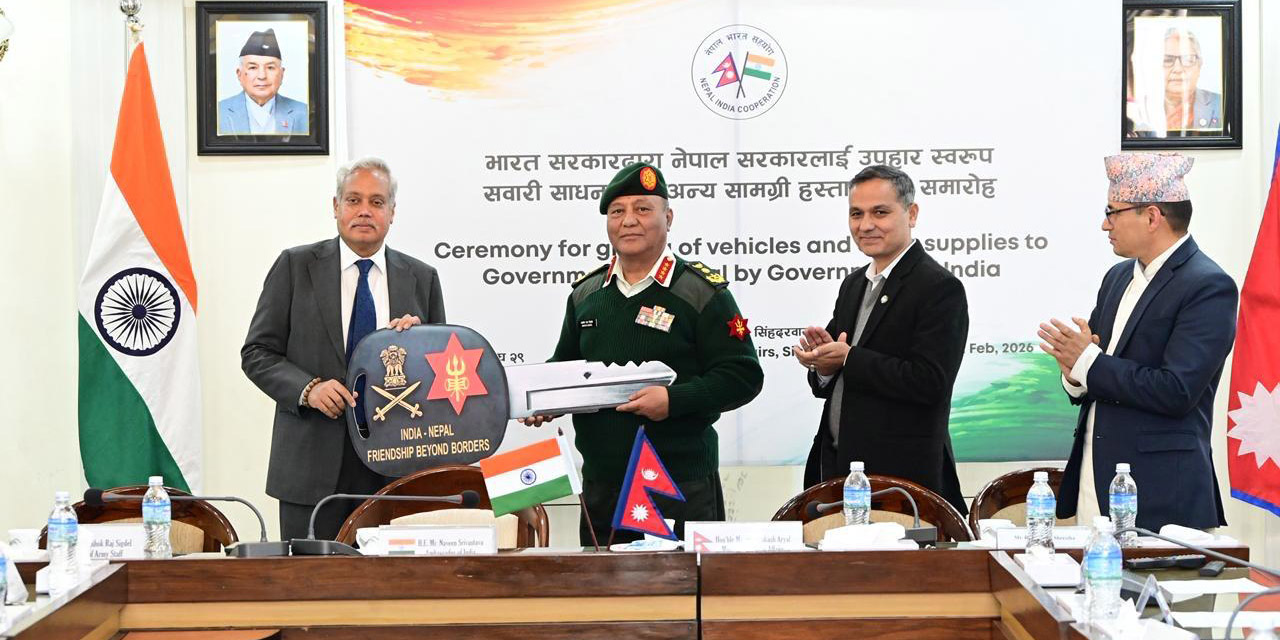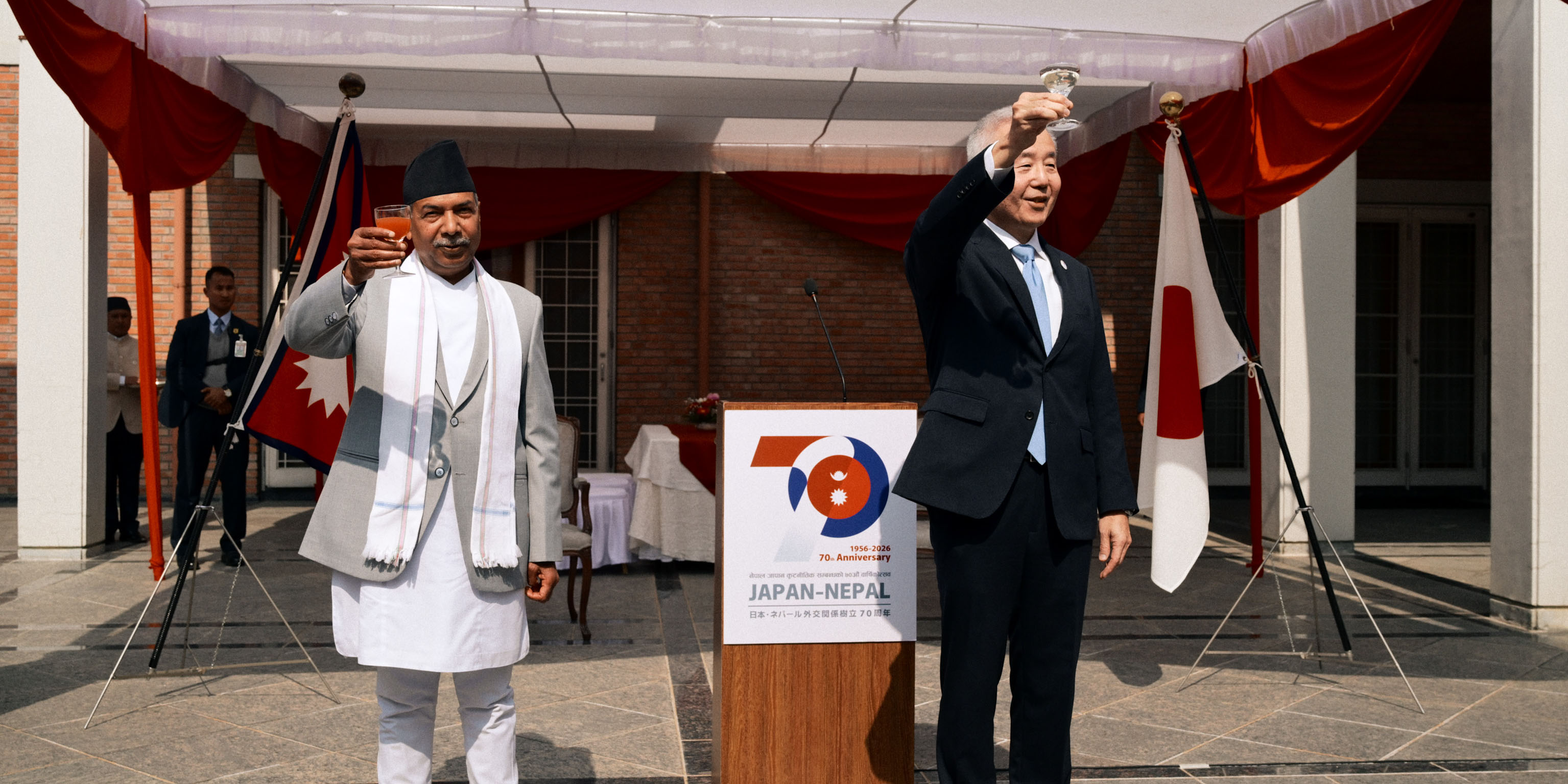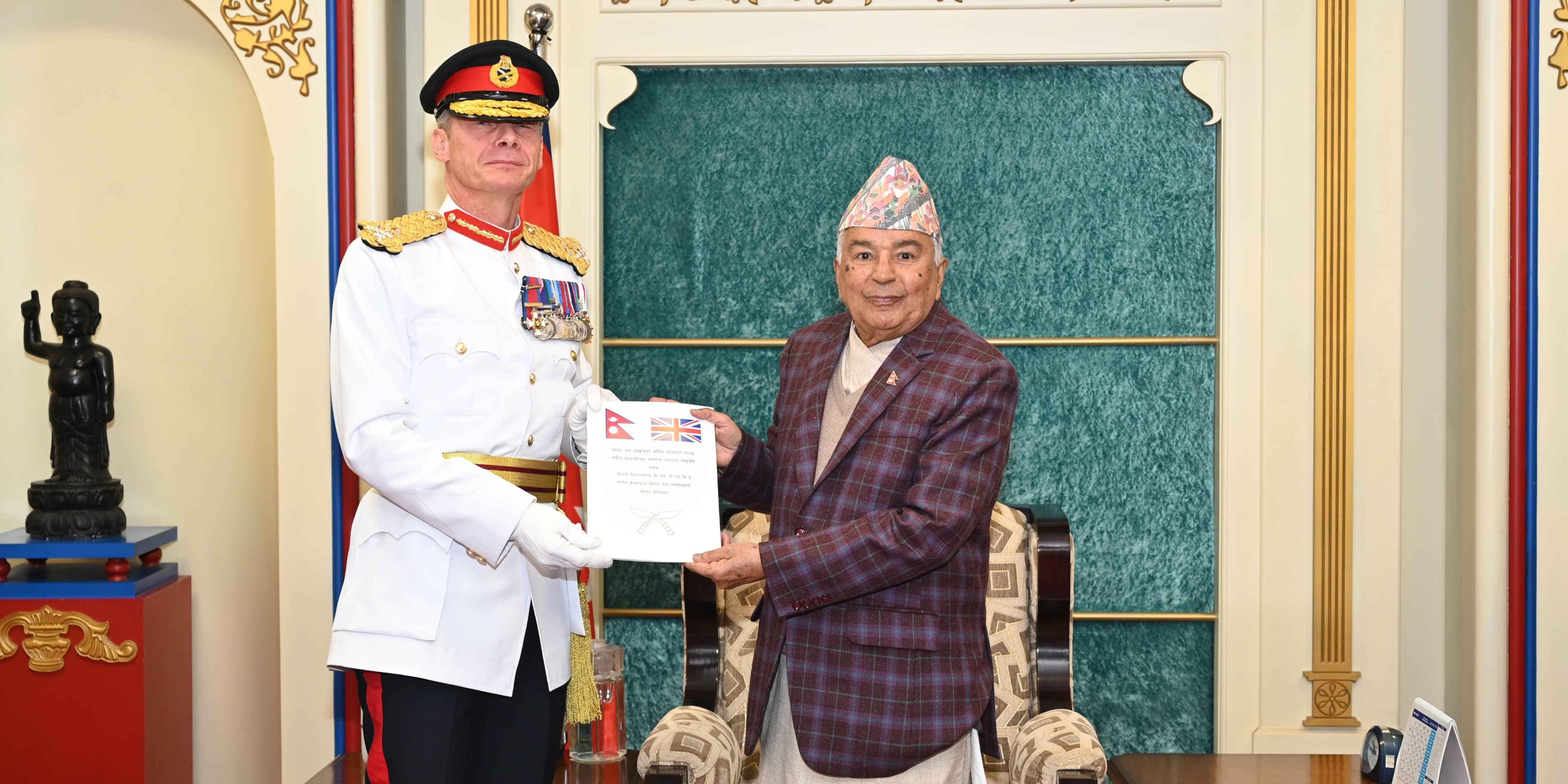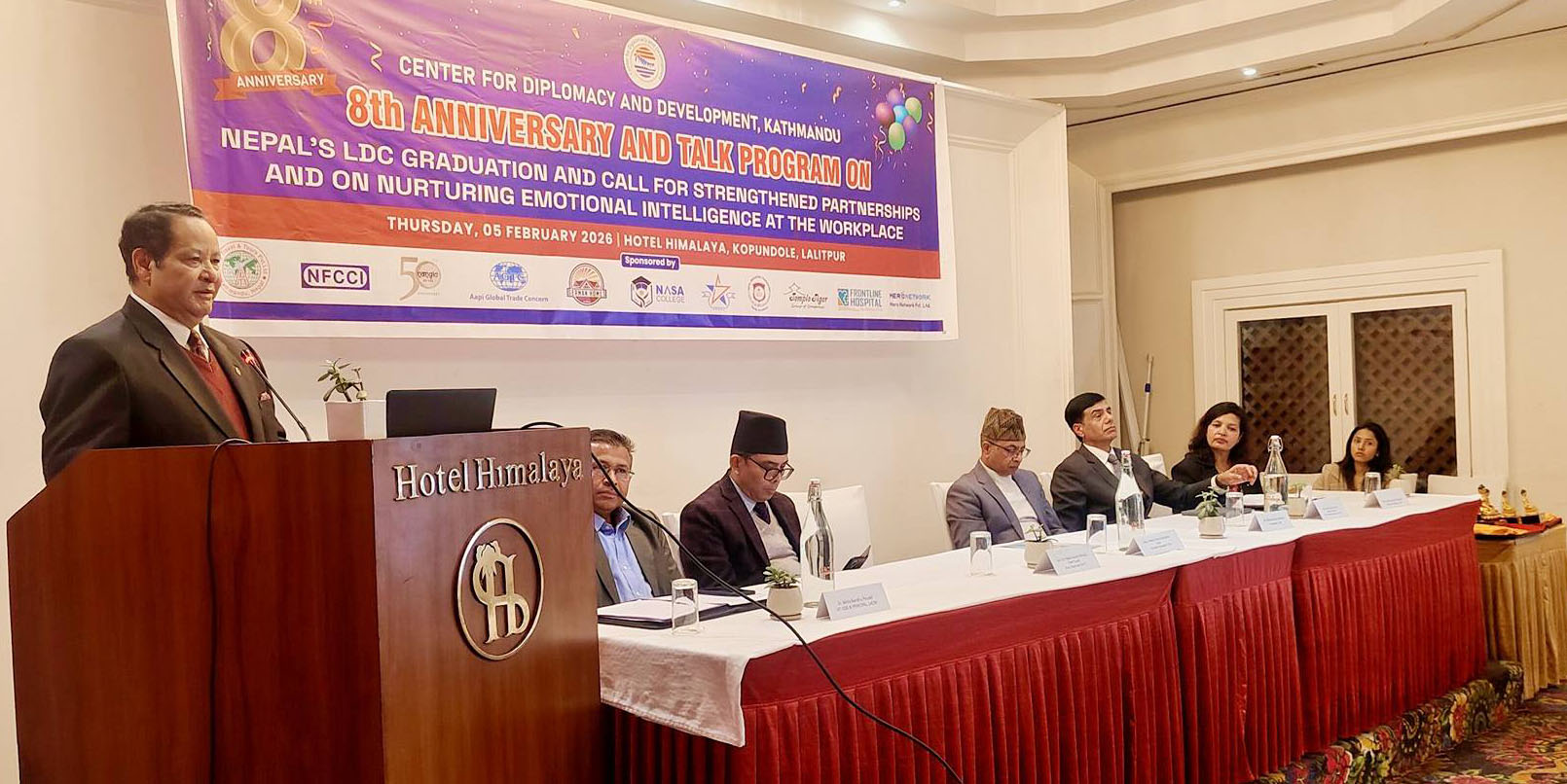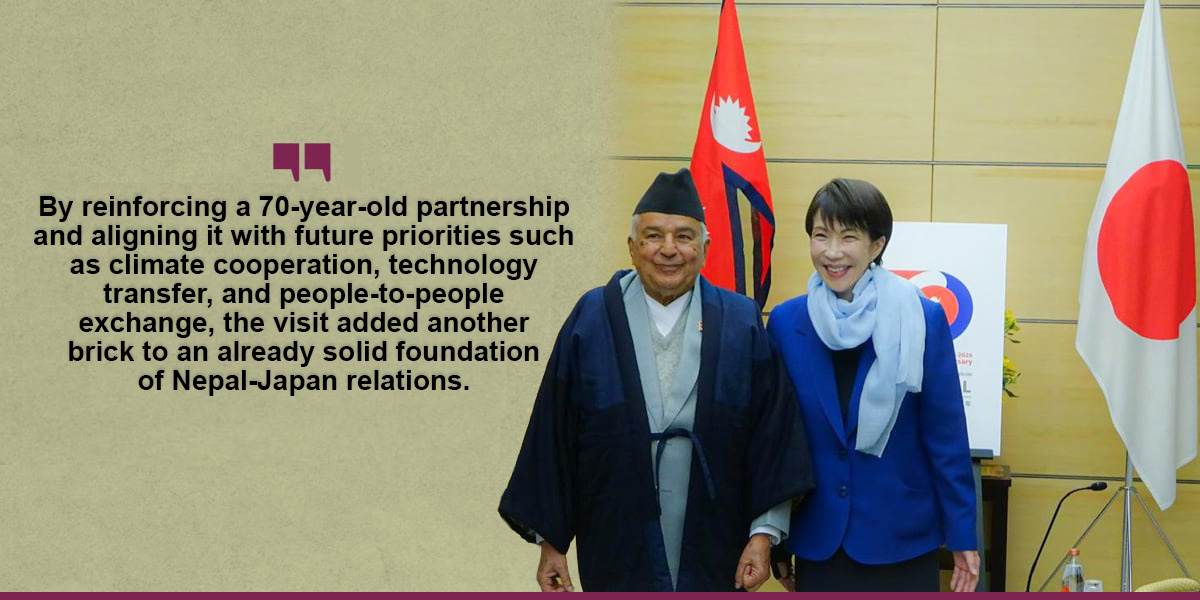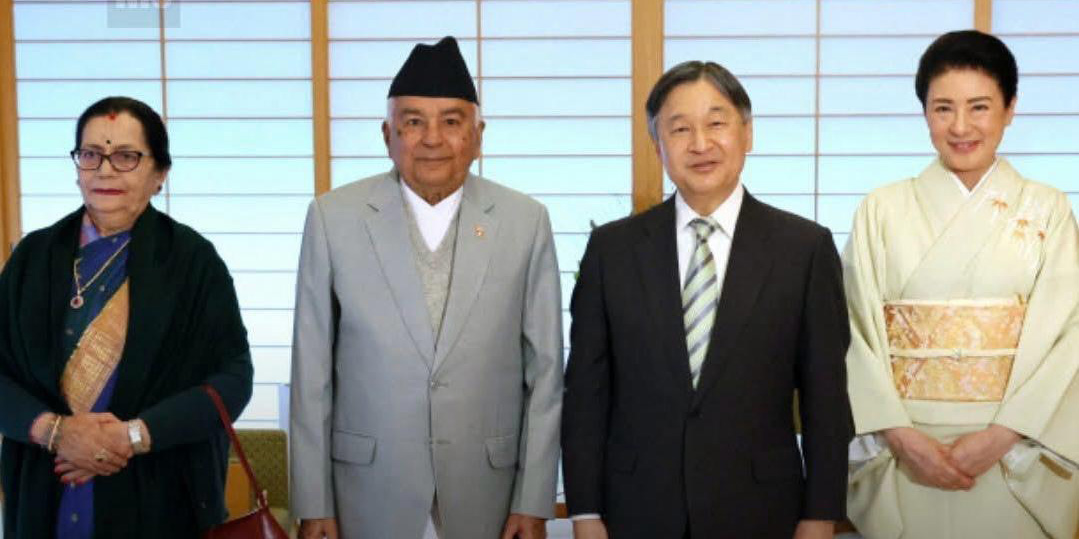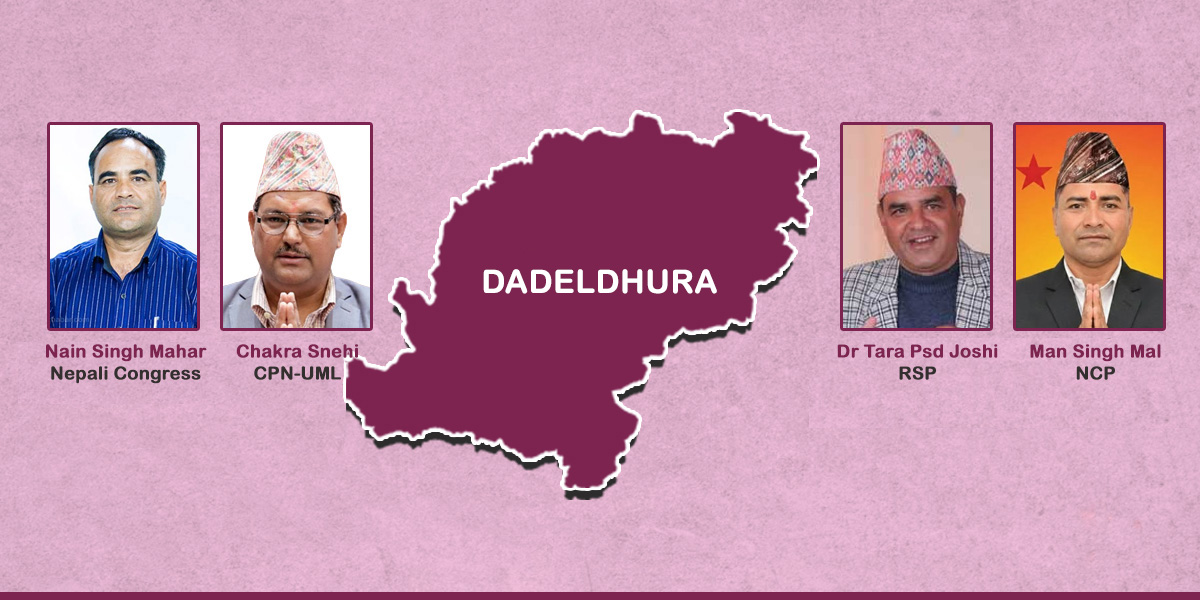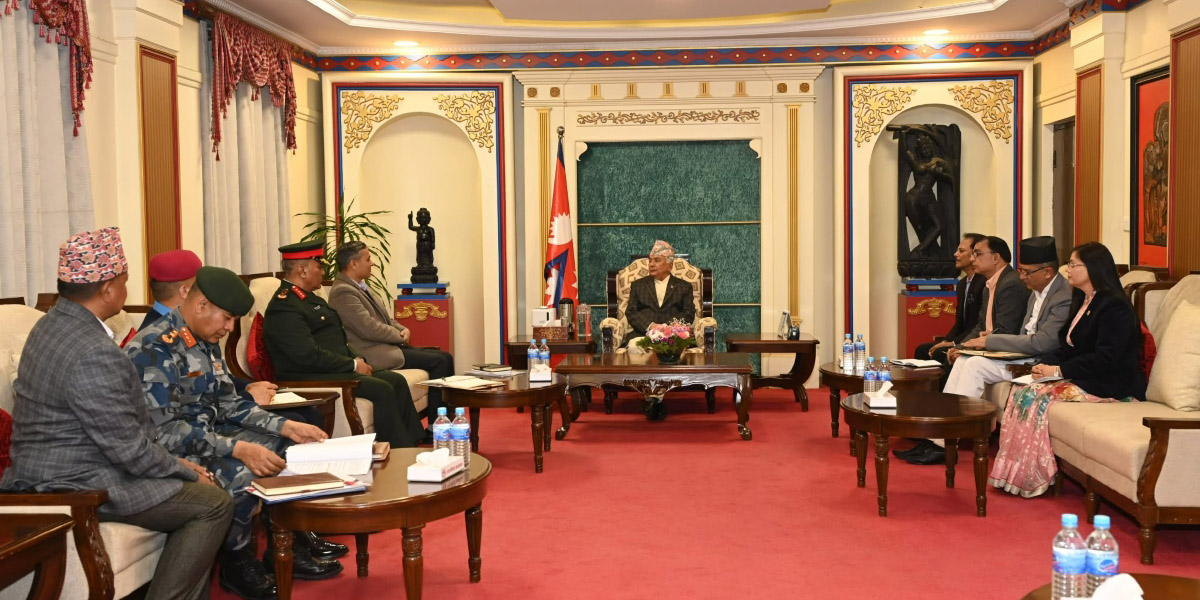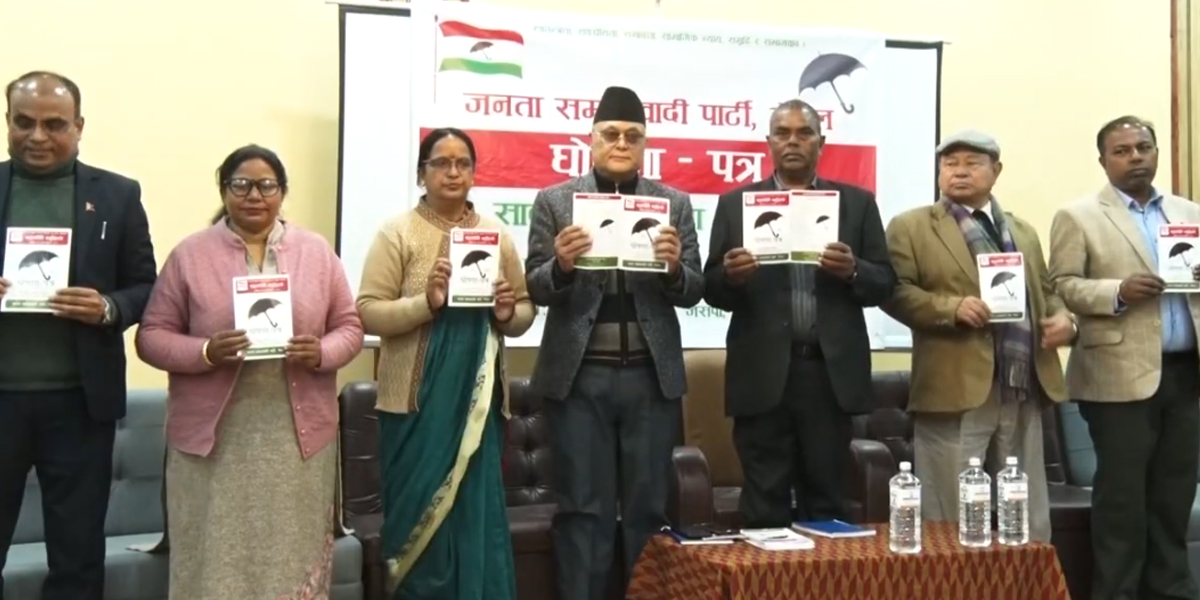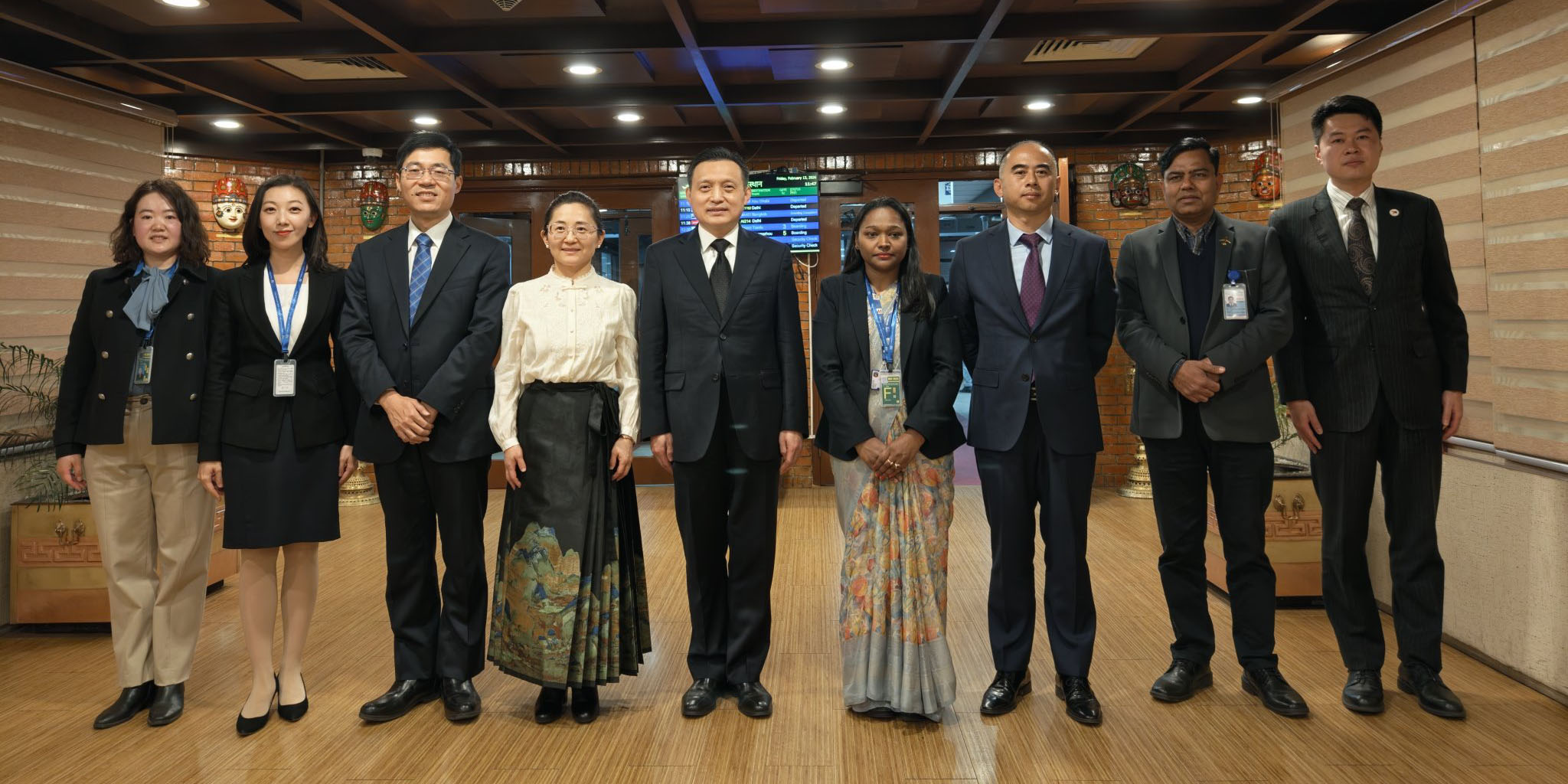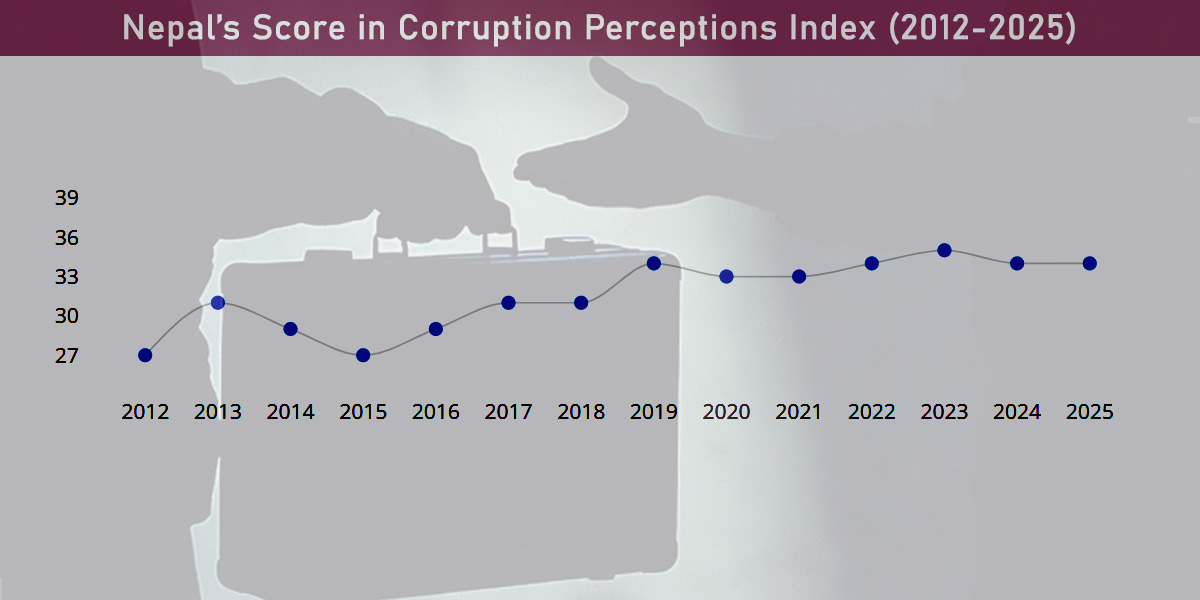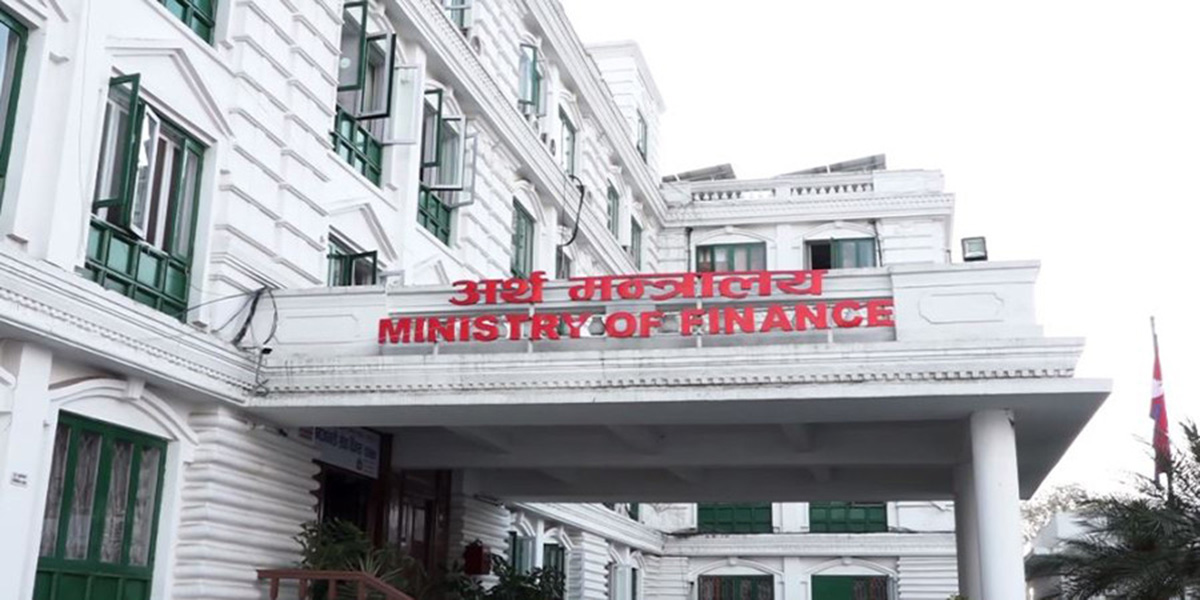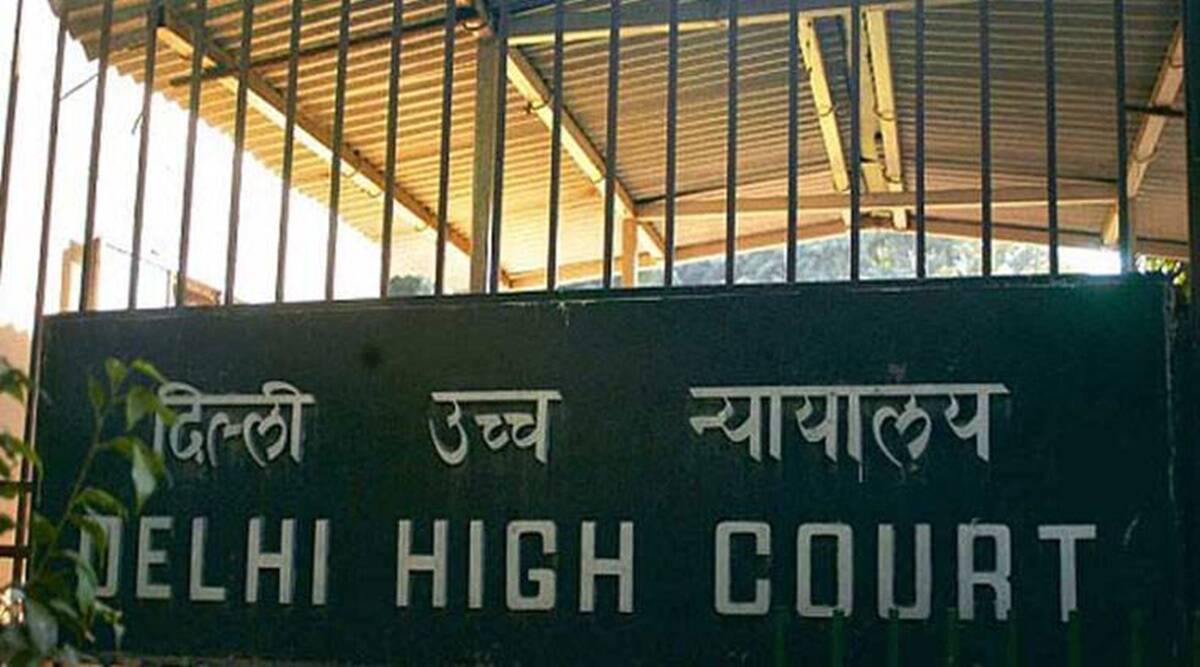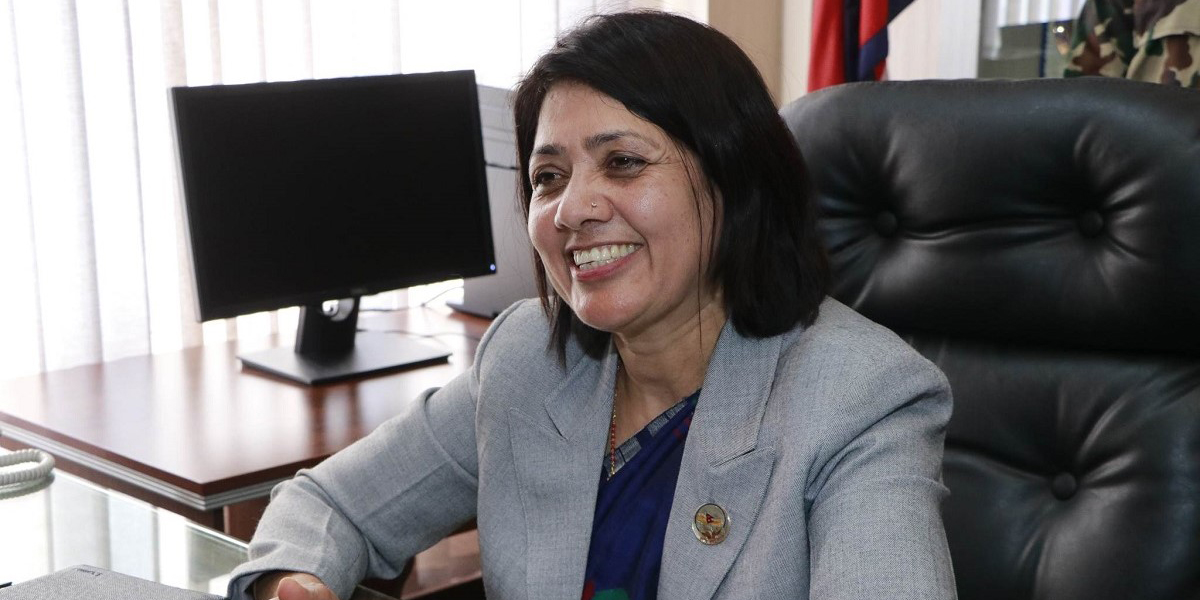 Photo: RSS
Photo: RSS
Dr Bimala Rai Poudyal is only the third woman at the helm of the Ministry of Foreign Affairs. Born in Myanmar, she completed her high school education in Biratnagar and went on to study agriculture in Chitwan. She later earned a Master’s degree in Manchester, United Kingdom. Dr Poudyal has worked with various development agencies including ActionAid, DFID, and the Swiss Development Corporation. She became interested in politics during her school days and has previously served as a member of the finance and planning committee of CPN-UML. She was also a member of the Sustainable Development and Good Governance Committee of the National Assembly. She also worked as a Member of the National Planning Commission (NPC) for one and half years. Dr Poudyal has also served as the Development Affairs Advisor to President Bidya Devi Bhandari. Chandra Shekhar Adhikari of Himal Press talked to Dr Poudyal to learn about her priorities at the Ministry of Foreign Affairs. Excerpts:
You have assumed office at the foreign affairs ministry. How is the feeling?
Women are not often given the foreign affairs portfolio. In some cases, even women leaders do not choose this ministry. I am honored to have been got this opportunity. Despite not having worked in the diplomatic service, my experience of working with various development agencies has given me an understanding of the style and process of diplomacy. However, I am facing some challenges and a sense of responsibility in this new role.
How are you planning to fulfill this important responsibility?
The leadership recognized my potential and showed belief in my skills and abilities. It felt I would be well-suited for the foreign affairs ministry. My background in study and work has given me an understanding of the issues related to foreign affairs. One needs to have proper coordination of internal and external aspects to succeed. I will strive to learn from the successes of the past and actively engage the permanent mechanisms within the ministry. Diplomacy can only be effective if the role of ministry personnel is made active. Isolation will not lead to success. I believe in the power of teamwork.
I understand that diplomacy encompasses a wide range of issues including economic development, relations with neighboring countries, border issues, and cross-border transportation access. As a responsible citizen, I have also recognized certain problems in these areas. My priority will be to address these issues. Understanding international relations and economic diplomacy alone is not sufficient. It must be effectively implemented in practice. I am committed to working towards this goal.
You raised the issue of non-aligned diplomacy on your first day in office. Are you trying to revive our old diplomatic initiative?
We practice the policy of non-alignment. We do not align ourselves with the interests of any particular country. Our non-aligned policy serves as the framework for our diplomacy. This policy is also reflected in our constitution and cannot be changed immediately. We must be aware of all issues related to our national interests based on principles such as Panchsheel, non-alignment, and the UN Charter. When it comes to voting, we should abstain when there is ambivalence, and only take sides when it is in the best interest of the world. Nepal will take sides on issues such as the impact of climate change, human rights, peace, the fight against terrorism, and drug prevention. Peace should be our main focus. We should promote Nepal’s peace process and advocate for peace.
The embassy is often the only place they can turn to in a foreign country. Therefore, it is important that our officials provide them with a welcoming and supportive environment.
You also said Nepalis should feel at home when they visit Nepali embassies. Did you say this because our embassies are not accessible to Nepalis living abroad?
I have personally visited several Nepali embassies and have experienced the hardships that Nepalis face. The embassy is often the only place they can turn to in a foreign country. Therefore, it is important that our officials provide them with a welcoming and supportive environment, including arranging for shelter if necessary. As many Nepalis work in foreign countries and send money back to Nepal, it is important to prioritize their well-being. This can be achieved by visiting the companies where they work, listening to their concerns and finding solutions to them. Additionally, we should prioritize the interests of Nepali workers when signing labor agreements. I will not stand idle if Nepalis are humiliated or mistreated by our embassy staff.
What initiatives are you taking to strengthen our diplomacy?
Our main diplomatic priority will be to strengthen cooperation and coordination with neighboring countries, Gulf countries, major powers, and development partners. Our philosophy is to maintain friendly relations with all nations and avoid any form of enmity. I will adhere to this principle and work without deviation. The role of the Ministry of Foreign Affairs, which represents Nepal in the international arena, is extremely important. I will not take this role lightly and will not make any decisions or meet with anyone on my personal discretion. It is essential to bring all diplomatic efforts under a one-door system. I will actively work towards this goal.
Are you trying to create a mechanism to prevent foreign ambassadors from directly meeting Nepali leaders?
Not only that, I am aware that there have been instances of correspondence and important agreements being made without involving the ministry. The ministry’s representatives are often only invited to attend the signing ceremony. I will not tolerate such actions. I am not suggesting that our leaders should not meet with ambassadors. They can. But all records of such meetings must be kept somwhere. The Ministry of Foreign Affairs is the responsible agency for this. These meetings do not always involve political give and take. Sometimes there are talks about the long-term interests of our country. Such meetings have helped to improve the way things are done. Additionally, I will work to counter negative narratives about Nepal and promote the country’s positive contributions to global issues.
Nepal, which earlier used to be described as a yam between two boulders, is described as ‘buffer zone’ by some. How do you understand it?
We should not view ourselves as a small, insignificant entity caught between two larger powers. We should strive to expand our horizons and see ourselves as landlinked, not landlocked. Our ability to benefit from our geographical connections depends on our diplomatic and political acumen. By maintaining a positive and strong relationship with our neighbors, we can increase our confidence in our role in the region. We should not see our neighbors as ‘boulders’, but rather as opportunities to learn from their successes and best practices. We must be mindful of the language we use and avoid perpetuating feelings of inferiority. It has been suggested that Nepal can serve as a bridge between its two neighbors or a transit point for trade and commerce. We should have confidence in our own unique strengths and capabilities. While geopolitical issues may present challenges, we should not allow them to define us. We are not a “yam” or a “buffer,” but rather a nation with our own unique qualities and potential.
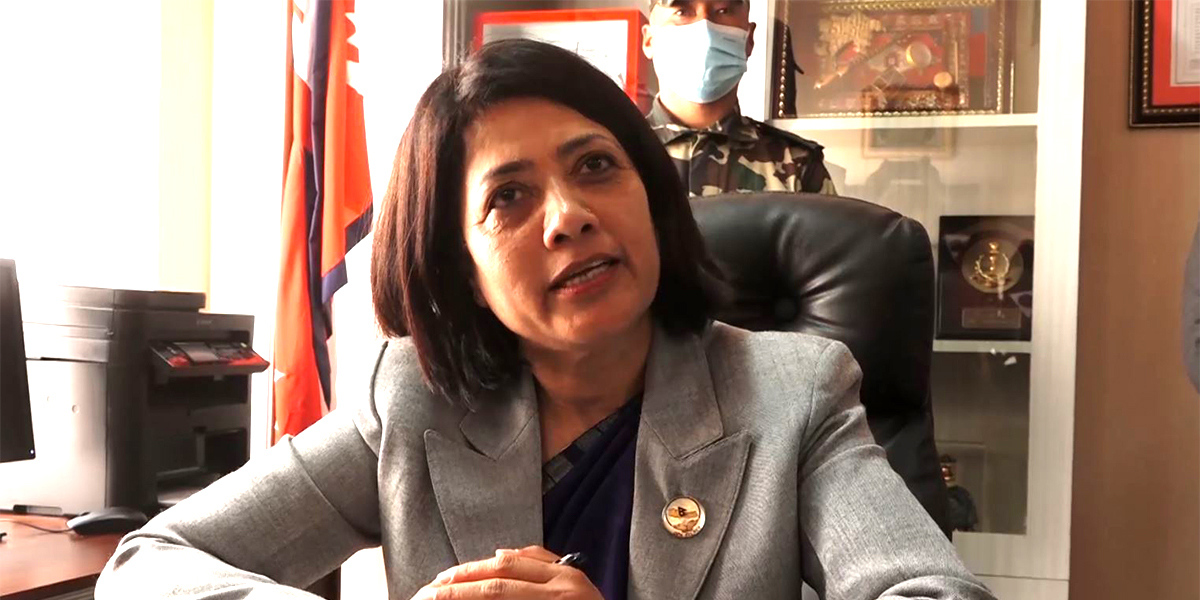
How to facilitate the distribution of passports that concerns many people?
The Ministry will focus on making the entire process smooth by identifying the problem. We will ensure proper coordination with district authorities and study why more service-seekers are visiting the Department of Passport than district offices. We will hold discussions with the Ministry of Home Affairs and bring the matter to a logical conclusion.
How is the working style of personnel at the ministry?
I have found that the personnel at the foreign affairs ministry are comparatively better. But this may not apply to everyone. While there are no major weaknesses, some training is needed to improve skills and abilities. Additionally, there is a communication gap on some matters, such as officials not reading and commenting on agreements with foreign agencies. Teamwork is crucial in addressing these small issues. Cooperation can be advanced in areas such as language, religion, culture, and tourism by paying close attention to these matters. My focus will be on these small details. If necessary, we can have a mix of staffers from diplomatic and other services in our missions abroad.
Have you thought of recalling the ambassador or sending someone as per your request?
I first plan to speak with all of our ambassadors and conduct a thorough review of their work performance. I will gather additional information from those close to them, if necessary. After conducting a thorough analysis, I will consult with the Prime Minister and make informed decisions. It is important to note that any changes will not be made solely based on the fact that they were appointed by the previous government.
How do you see the present political situation?
The political situation is showing signs of stability. This progress is largely due to the efforts of the people themselves, and we should be proud of this accomplishment. It is important to now look ahead and not let our achievements go to waste. We should be clear about our intentions and not rely on foreign assistance to achieve our goals.

 Himal Press
Himal Press 